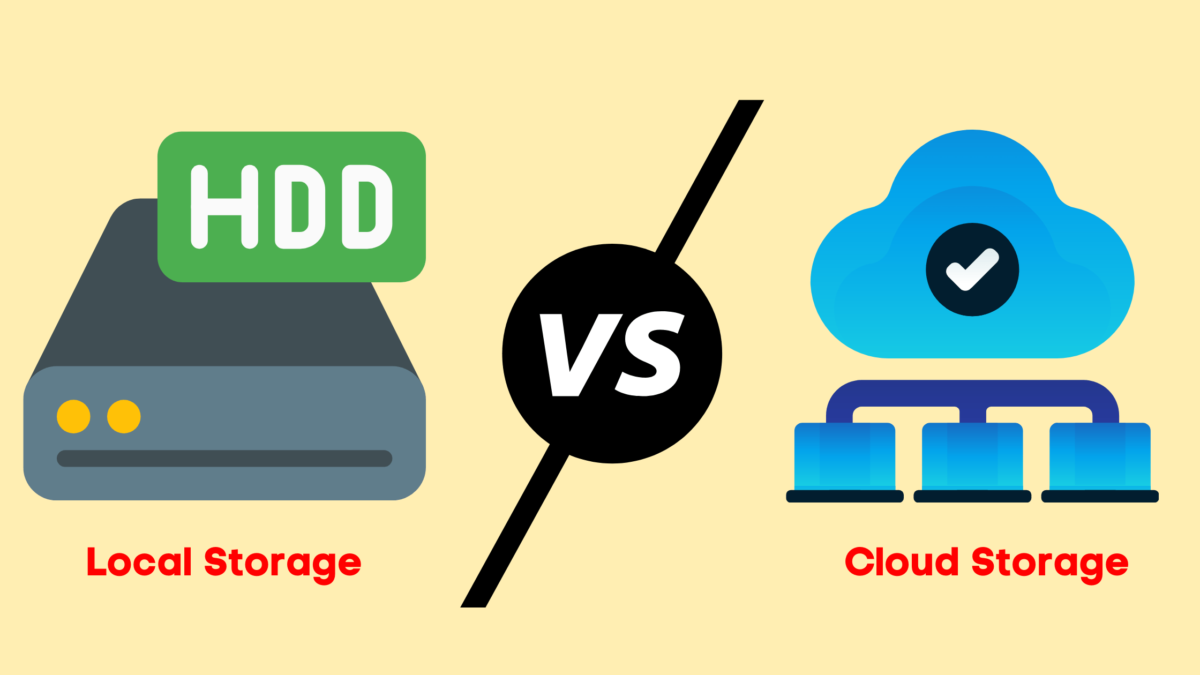
Today, we’re diving into the world of data storage – a topic that’s crucial in our digital age. Whether you’re a tech enthusiast or just someone looking for the best way to safeguard your precious data, this blog will help you unravel the differences between hard drive and cloud storage.
So, you’ve got a bunch of important files, photos, and music, and you’re wondering where to stash them. The two main contenders in this battle are hard drives and cloud storage. Let’s break down the differences between these two tech titans.
Hard Drive Storage: Old Faithful
A hard drive is like your trusty old pickup truck. It’s reliable, always there when you need it, and you don’t have to rely on anyone else to access your stuff. Just plug it in, and your data is at your fingertips. But, as with that old truck, there are downsides:
- Vulnerability: Hard drives are physical devices, making them susceptible to damage, theft, or loss. Drop your drive, and you might just cry over spilled data.
- Limited Capacity: These bad boys have finite space. When you fill one up, you need to buy another, and another, and another. You get the picture – it’s a never-ending cycle.
Cloud Storage: The New Kid on the Block
Cloud storage is like a sleek sports car – fast, accessible from anywhere, and packed with high-tech security features. Here’s why it’s making waves:
- Universal Access: With an internet connection, your data is accessible from any device, anywhere in the world. No more lugging around a physical device.
- Security: Cloud storage providers employ top-notch encryption and security measures, keeping your data safe from prying eyes. Some even offer zero-knowledge encryption, meaning your data remains your little secret.
- Backup and Recovery: Your data is automatically backed up on multiple servers, reducing the risk of loss due to hardware failure or unexpected disasters. Accidentally deleted something? No worries, cloud storage has your back.
Advantages of Cloud Storage Over Hard Drives
- Universal Access: Say goodbye to lugging around your hard drive; your data is accessible from any device, anywhere in the world.
- Security: Advanced encryption and authentication methods keep your data private. You’re in control of your virtual vault.
- Backup and Recovery: Don’t fret about hardware failures or accidental deletions; cloud storage has your back with automatic backups.
Disadvantages of Cloud Storage Compared to Hard Drives
- Speed: Cloud storage’s performance relies on your internet speed and bandwidth. Hard drives are generally faster and more reliable.
- Cost: While cloud storage might seem cheaper initially, the recurring fees can add up. Hard drives are a one-time investment and can be more cost-effective in the long run.
- Control: When you use a cloud service, you’re putting your trust in a third-party provider. They call the shots, and you might have to play by their rules. With hard drive storage, you have more control over how and where you store and back up your data.
In the end, the choice between hard drive and cloud storage boils down to your needs and preferences. If you prioritize accessibility, security, and peace of mind, cloud storage is your go-to. But, if you’re all about speed, cost-effectiveness, and maintaining control, hard drive storage is the way to roll.



